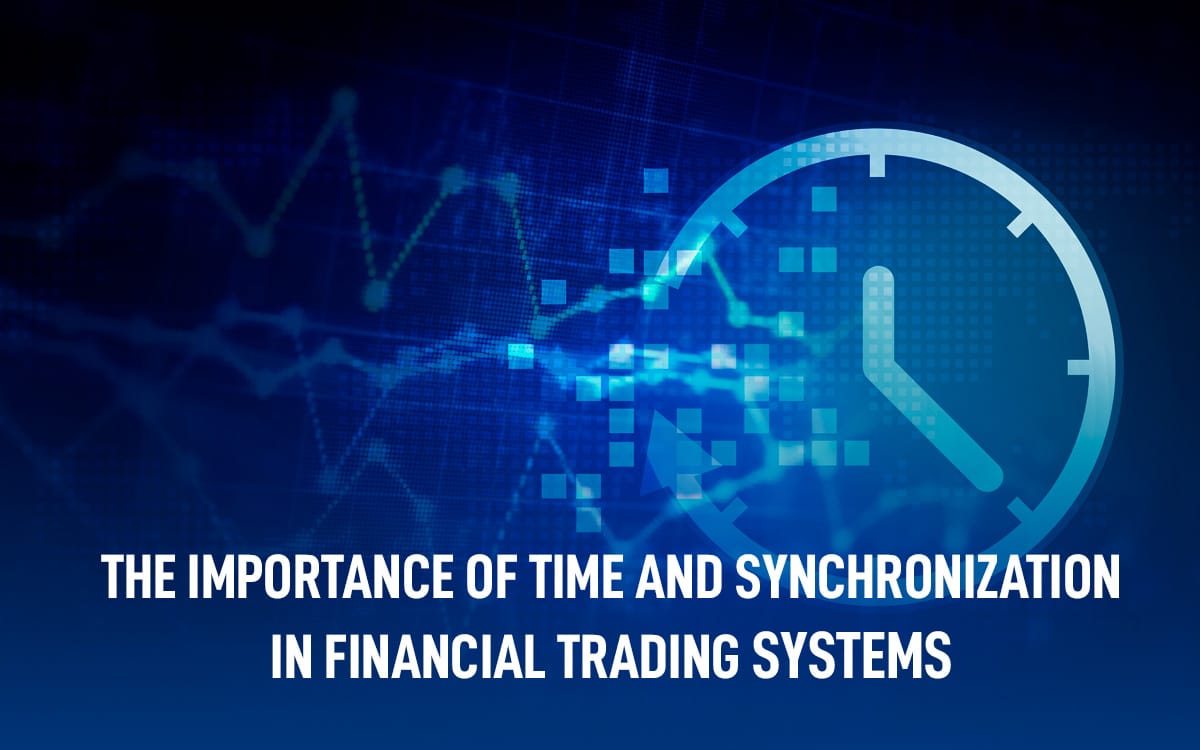
The Importance of Time and Synchronization in Financial Trading Systems
Introduction
In the fast-paced and competitive world of financial trading, every millisecond matters. Traders and financial institutions rely on sophisticated computer systems to execute trades and make split-second decisions. To ensure the accuracy and integrity of these systems, time and synchronization play a critical role. We will explore why time, synchronization, and network time servers are essential in financial trading systems and how they contribute to maintaining fairness, efficiency, and reliability in the markets.
- Fairness and Market Integrity
One of the fundamental principles of financial markets is fairness. Investors expect that the prices at which they trade are secure and the same for everyone at any given moment. Achieving fairness requires precise timekeeping and synchronization across all trading participants.
Moreover, in a global marketplace, where transactions occur across different time zones, accurate time synchronization becomes paramount. It ensures all market participants have access to the same market data and trades are executed based on the latest information available. Without synchronized time, market manipulation and unfair trading advantages could emerge, leading to a loss of confidence in the integrity of the financial system.
- Order Execution and Latency Arbitrage
Financial markets operate at lightning speed, with millions of trades being executed every second. In such an environment, even the smallest time discrepancies can give certain participants an unfair advantage. Traders often strive to exploit tiny time differences, known as latency arbitrage, to gain an edge over their competitors.
To prevent latency arbitrage and maintain a level playing field, financial trading systems rely on accurate time servers. By ensuring all trading participants have access to the same precise timestamp, order execution can be prioritized based on a strict first-come, first-served basis. This approach minimizes the potential for unfair advantages resulting from speed discrepancies and creates a fairer and more efficient trading environment.
- Event Sequencing and Trade Validation
In financial markets, the order of events is crucial for proper trade validation and risk management. Accurate timekeeping and synchronization are vital for maintaining the correct sequence of market events, such as order submissions, cancellations, and trade executions.
Sub-nanosecond time distribution devices, such as the White Rabbit Z-16, can provide accurate timestamps. By synchronizing timestamps across all trading systems, regulators and market participants can accurately reconstruct market activity and investigate any suspicious or fraudulent activities. Timestamps serve as a vital audit trail, allowing for the identification of irregularities and ensuring the integrity of trading processes.
- Regulatory Compliance
Financial markets are subject to numerous regulations designed to ensure fairness, transparency, and stability. Regulatory bodies impose strict requirements on market participants regarding the recording and reporting of trades, as well as the accurate timestamping of market events.
To comply with these regulations, financial trading systems must maintain synchronized clocks and accurate timestamps. Time synchronization protocols, such as Network Time Protocol (NTP) or Precision Time Protocol (PTP) or White Rabbit Protocol (WR), are commonly employed to achieve this. By adhering to regulatory timekeeping standards, financial institutions can demonstrate their commitment to compliance and minimize the risk of penalties or reputational damage.
- System Stability and Resilience
Financial trading systems are complex, interconnected, and comprised of various components, such as order management systems, market data feeds, and trading algorithms. The stability and reliability of these systems are paramount to prevent costly disruptions and ensure uninterrupted market operations.
Conclusion
Time synchronization plays a vital role in maintaining financial system stability. Accurate timestamps enable efficient coordination between different components. The White Rabbit time and synchronization technology can ensure that your network has accurate timestamps across all distributed datacenters.

 Related Resources
Related Resources
 Follow The White Rabbit
Follow The White Rabbit
Explore the sub-nanosecond time accuracy of White Rabbit Devices

